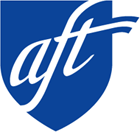ELL News Headlines
Throughout the week, Colorín Colorado gathers news headlines related to English language learners from around the country. The ELL Headlines are posted Monday through Friday and are available for free!
Get these headlines sent to you weekly!
To receive our free weekly newsletter of the week's stories, sign up on our Newsletters page. You can also embed our ELL News Widget.
Note: These links may expire after a week or so, and some websites require you to register first before seeing an article. Colorín Colorado does not necessarily endorse these views or any others on these outside web sites.
'Science of Reading' and English-Learner Advocates Reach Common Ground
In a recent statement, The Reading League, an organization that advocates for the science of reading, and the National Committee for Effective Literacy, a group that promotes research and policies to support literacy development for English learners, agreed on best practices for evidence-based reading instruction for EL and emergent bilingual students.
12 Books About Bridging Language Barriers
These picture books feature characters who find ways to communicate with older relatives or with each other, even when they don't share a common language.
‘We Exist': How to Learn About Native Americans Through Native Lenses
Farina King, a Navajo Nation citizen, is the Horizon Chair of Native American Ecology and Culture and associate professor of Native American studies at the University of Oklahoma. She writes, "Every November, someone contacts me to present about Native Americans for Native American Heritage Month. In such presentations, I provide background about the month and why it matters. But I also emphasize how important it is to learn about Native Americans not just in a single month or at a single event. I stress turning to and listening foremost to Native American and Indigenous voices throughout the year."
We Need Diverse Books Launches Indigenous Kid Lit Website
We Need Diverse Books has launched Indigenous Reads Rising (IRR), a new website dedicated to "celebrating Indigenous children's literature of Native Nations." The site features booklists and articles on Native American literature, land acknowledgment, and tropes and stereotypes, as well as extensive resources for teachers, librarians, and readers. The goal of the resources is to help educators use Native books in the classroom and offer guidance and best practices on how to teach those books.
Service programs could be key to addressing our education crisis
Service programs are just one of many solutions needed to address the challenges to our education system, and they have been proven to be effective. These programs improve conditions in schools by providing trained, near-peer coaches (often just a few years older than the students) to California’s school communities to mentor some of our hardest-to-reach students.
How to Support Students Afflicted by Trauma
Being "trauma-informed" has become a bit of a buzzword in education these days. A previous series in this blog attempted to provide an introduction to what it might mean for teachers. Today's post tries to provide further clarity.
Feds urge schools to protect rights of Jewish, Muslim students following 'alarming' rise in bias incidents
Federal officials are urging school leaders to protect Jewish and Muslim students from discrimination following an "alarming rise" in reports of antisemitism, Islamophobia, and other incidents of bias at colleges and K-12 schools over the last month.
How classes in Spanish are attracting nannies to community college
Bonnie Pérez took child development classes at night while working as a nanny during the day. But she didn't see a lot of other nannies in her classes, largely because the classes were all in English. Bonnie saw an untapped group of people with lots of hands-on experience working with kids and who could help fill a shortage of preschool teachers in the state. A new California law removes barriers to allow more students to enroll in courses taught in Mandarin, Spanish, Russian, Korean and other languages.
Native American students have the least access to computer science
Only 67 percent of Native American students attend a school that offers a computer science course, the lowest percentage of any demographic group, according to a new study from the nonprofit Code.org. A recent report from the Kapor Foundation and the American Indian Science and Engineering Society, or AISES, takes a deep look at why Native students' access to computer and technology courses in K-12 is so low, and examines the consequences.
Like it or not, kids hear the news. Here's how teachers help them understand it
Each morning, Stephanie Nichols gathers her second graders around a table to eat breakfast and start their day. As the kids unpack their knapsacks and settle into the classroom, Nichols likes to listen more than she speaks. But in recent weeks the table was buzzing about one thing: the mass shooting in Lewiston that left 18 people dead and 13 wounded. The event resulted in a multi-day search that closed schools and left the community on lockdown. Nichols teaches at Narragansett Elementary School in Gorham, Maine, about 40 minutes from Lewiston. "Even that far away, you know, we all have connections," she says. "It's Maine. It really is like the biggest small town."






